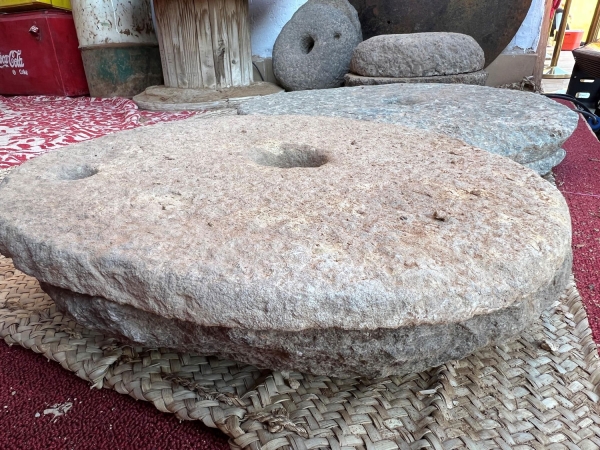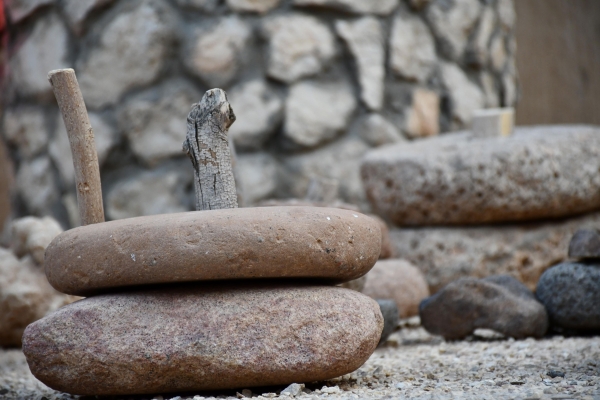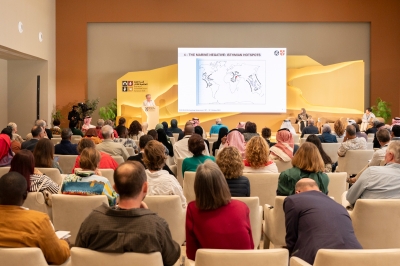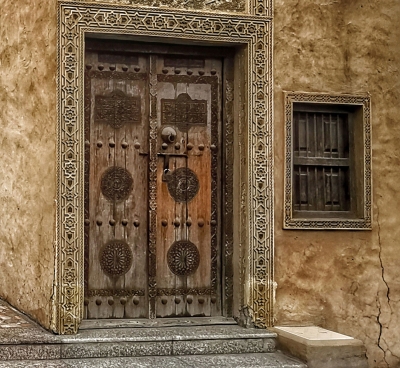

Ar-Raha (Handmill) is a primitive tool made of rough, heavy stone, consisting of two round stones placed one on top of the other, known as the stones of ar-Raha. Their diameter ranges from one to three ft, depending on the size of the tool. It was historically known in Saudi culture as one of the tools invented by humans to facilitate the grinding and crushing process for bread preparation. In the past, Saudi society relied on wheat and barley to prepare daily foods such as bread and Jarish. In the past, no kitchen was complete without this tool.
History of ar-Raha
The history of ar-Raha dates back to ancient civilizations that mastered agriculture and utilized seed-producing plants. These civilizations invented ar-Raha as a grinding tool, which became widespread among various cultures and civilizations. Among Arab communities, ar-Raha was known by different names; some referred to it as ar-Raha as mentioned in linguistic texts, while others called it 'al-Mijrasha'.
Design of ar-Raha
Ar-Raha consists of two stones. The lower stone remains fixed, with a narrow hole in the center to accommodate a wooden or metal axis called Qutb ar-Raha (pivot of ar-Raha), around which the upper stone rotates.
The upper stone, slightly larger than the lower one, is the movable part. It has a relatively large hole in the center through which grains are added and a smaller hole on the edge for inserting a wooden handle used to rotate the stone. A cushion is placed beneath the base of ar-Raha to stabilize it while the woman grinds the flour. Operating ar-Raha requires physical strength from the woman. Sometimes, two women work together, or children assist their mother in turning the mill, especially during the grain harvest season when large quantities of grains need to be ground.
Presence of ar-Raha in festivals
Ar-Raha is featured prominently in festivals and national events held across various regions of the Kingdom, as it is considered a traditional household item that families take pride in preserving. Among these festivals is the Heritage House Festival in Hail, held at Aja Park in 2023, and the King Abdulaziz Palace Museum in the historical city of Linnah, which participated in the Zubaida Trail Winter Festival. This festival was organized by the Imam Turki Bin Abdullah Royal Reserve Development Authority (ITBA) in Linah Village, located in the Northern Borders Province, in 2022.
Related quizzes


